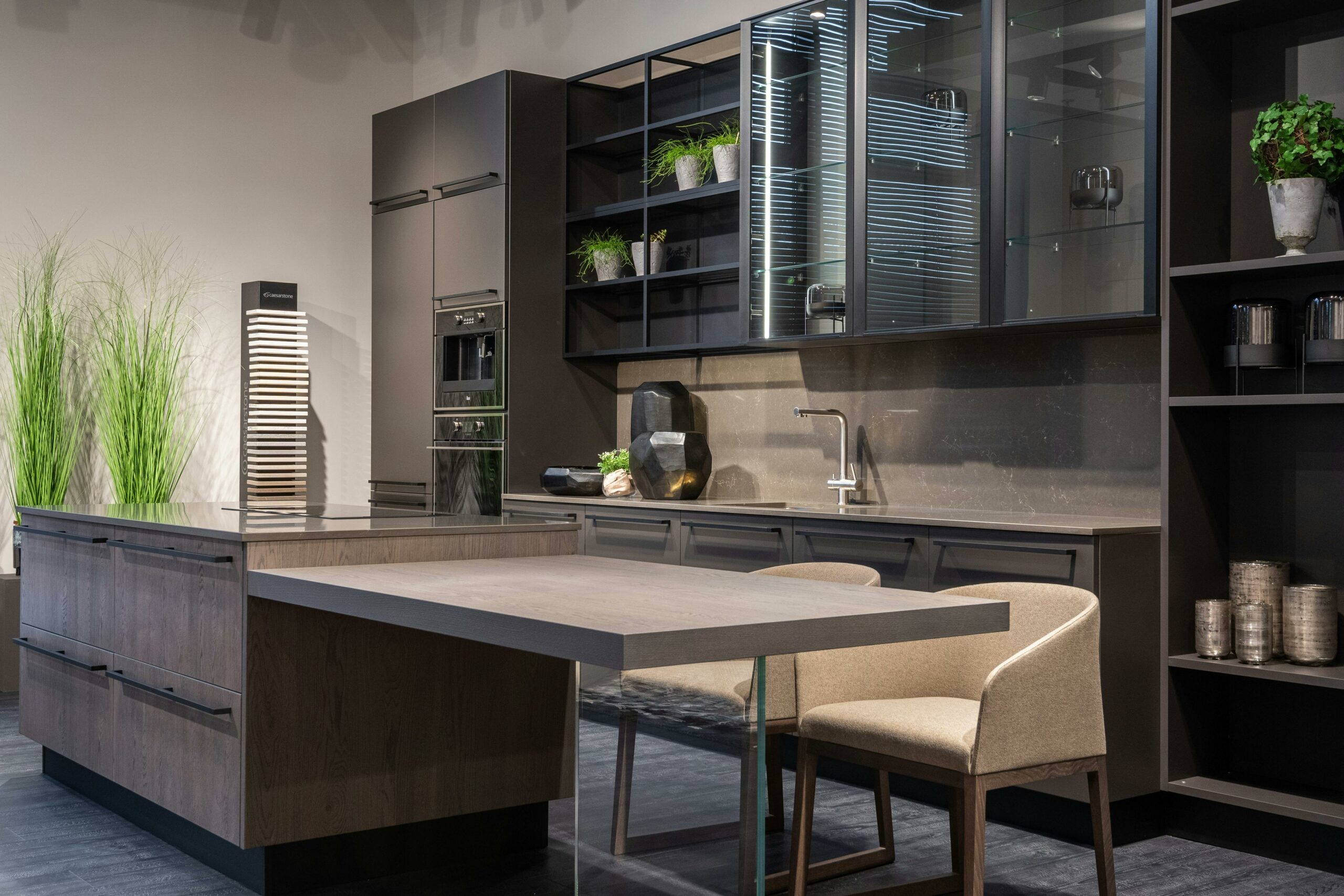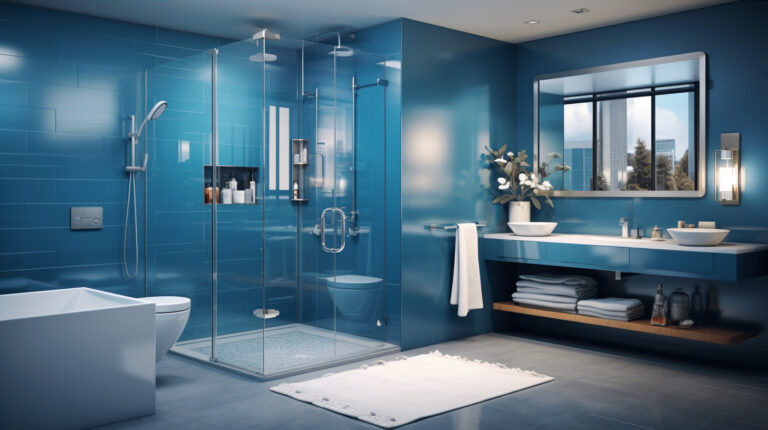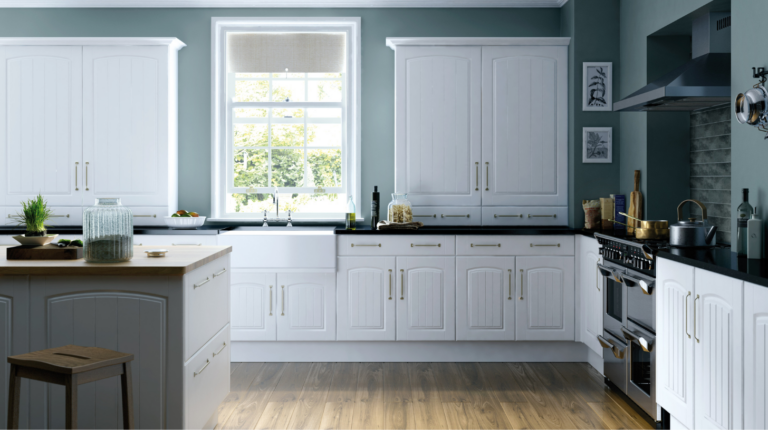Practical Tips for Kitchen Renovation: Homeowners’ Guide
Embarking the tips for kitchen renovation project can be both exciting and overwhelming for homeowners. It’s an opportunity to transform the heart of your home into a space that perfectly reflects your style and meets the needs of your family. Whether you’re looking to upgrade outdated fixtures, increase storage space, or create a more functional layout, tips for kitchen renovation can breathe new life into your home.
However, before you dive headfirst into the world of kitchen remodeling, it’s crucial to have a clear understanding of what’s involved and how to make the most of your renovation. This guide aims to provide practical tips and insightful advice to help you navigate the tips for kitchen renovation process successfully.
In the sections that follow, we’ll explore the important aspects of kitchen renovation, including the benefits, costs, and style considerations. We’ll delve into budgeting and planning, choosing materials wisely, and optimizing storage space. Plus, we’ll discuss the pros and cons of hiring professionals to assist with your renovation. Lastly, we’ll address how to deal with the inevitable stress that can come with a home renovation project and offer tips on maintaining your newly renovated kitchen.
So, whether you’re a seasoned DIY enthusiast or prefer to leave it to the professionals, this guide will equip you with the knowledge and know-how to achieve a successful tips for kitchen renovation that will not only enhance your home but also add value to it. Get ready to embark on a journey of transforming your kitchen into a space you’ll love for years to come.
Table of Contents
Understanding Kitchen Renovation: Important Aspects

When it comes to home renovations, the kitchen often takes center stage. It’s where we gather to cook, eat, and connect with loved ones. But before diving into the tips for kitchen renovation project, it’s essential to understand the key aspects that will contribute to a successful outcome. From the need and benefits of renovation to choosing a style that matches your house aesthetics, let’s explore the important factors to consider.
Need and Benefits of Renovation
Renovating a kitchen is a significant investment, both in terms of time and budget. Before embarking on this endeavor, it’s crucial to evaluate the need for a kitchen renovation.
Some common reasons people opt for a kitchen remodel include:
- Functionality: If your current kitchen layout is inefficient and lacks storage space, a renovation can help optimize the functionality of the space.
- Outdated Design: If your kitchen feels stuck in a different era, a renovation can bring it up to date and align it with your personal style.
- Increased Home Value: A well-designed and modern kitchen can significantly enhance the value of your home, making it a desirable asset in the real estate market.
By renovating your kitchen, you not only address the practical aspects but also create a space that reflects your personality and meets the needs of your lifestyle.
Costing: An Important Factor
Before diving into any renovation project, budgeting is of utmost importance. The cost of a kitchen renovation can vary widely depending on various factors, including the scope of work, materials used, and location. It’s essential to set a realistic budget and be mindful of the costs involved.
To effectively manage costs, consider the following:
- Prioritize: Identify the key features and elements you want to include in your new kitchen. Allocate more budget to essential aspects and be ready to compromise on less critical elements.
- Research: Shop around and compare prices for materials, appliances, and labor. Consider multiple quotes to ensure you get the best value for your money.
- Contingency Budget: Set aside a contingency fund for unexpected expenses that may arise during the renovation process.
By carefully planning your budget and sticking to it, you can avoid unnecessary financial stress and ensure a successful tips for kitchen renovation.
Choosing a Style: Matching the House Aesthetics
When renovating your kitchen, it’s important to choose a style that aligns with the overall aesthetics of your house. This helps create a cohesive look throughout your home and ensures that your kitchen renovation seamlessly integrates with the existing design.
Consider the following factors while selecting a style:
- Architecture: Take into account the architectural style of your home. Whether it’s modern, traditional, or transitional, your kitchen style should complement the overall architectural theme.
- Personal Taste: Consider your personal preferences and unique style. Do you prefer a sleek contemporary design or a cozy farmhouse-inspired look? Choose a style that resonates with your taste and personality.
- Functionality: While aesthetics play a significant role, don’t overlook the functionality of your kitchen. Ensure that the chosen style allows for efficient workflow and meets your specific needs.
By carefully selecting a style that harmonizes with your house aesthetics, you can create a kitchen that not only looks beautiful but also feels like an integral part of your home.
Planning and Spacing
Proper planning and layout are critical when it comes to tips for kitchen renovation. Wasting space or neglecting functionality can lead to a less than ideal kitchen experience.
Consider the following aspects in your planning process:
- Workflow: Plan the layout in a way that optimizes the workflow and minimizes unnecessary movement between key kitchen zones, such as the cooking, prep, and cleaning areas.
- Storage: Assess your storage needs and incorporate adequate cabinets and drawers to keep your kitchen organized and clutter-free.
- Appliance Placement: Consider the placement of appliances, ensuring they are easily accessible and strategically positioned for efficiency.
- Traffic Flow: Take into account the traffic flow in your kitchen by allowing enough space for multiple people to navigate comfortably.
By meticulously planning the layout and spacing, you can create a kitchen that is both functional and visually appealing.
Proper Lighting
Good lighting is essential for any kitchen. It not only enhances the overall aesthetics but also contributes to safety and functionality.
Consider the following lighting options:
- Task Lighting: Install task lighting in key areas, such as above the countertop, stove, and sink, to provide ample illumination for food preparation and cooking.
- Ambient Lighting: Use ambient lighting to create a pleasant overall ambiance in the kitchen. This can be achieved through recessed lights, pendant lights, or chandeliers.
- Accent Lighting: Incorporate accent lighting to highlight specific features, such as a backsplash or a statement piece.
By strategically combining different types of lighting, you can create a well-lit kitchen that sets the right mood and serves its purpose effectively.
In conclusion, a successful kitchen renovation involves understanding the need for renovation, careful budgeting, selecting a style that matches the house aesthetics, planning and spacing effectively, and incorporating proper lighting. By paying attention to these important aspects, you can transform your kitchen into a functional, beautiful, and inviting space for you and your loved ones to enjoy.
Tips For Kitchen Renovation

Are you considering giving your kitchen a much-needed makeover? A well-planned and executed kitchen renovation can breathe new life into your space, making it more functional and aesthetically pleasing. However, tackling a kitchen renovation project can be overwhelming if you don’t have a clear plan in place. To help you achieve a successful kitchen renovation, we’ve gathered some valuable tips to guide you through the process. Let’s dive in!
Budgeting and Planning: Key to Success
Before you start tearing down walls or picking out new countertops, it’s crucial to establish a budget for your kitchen renovation project. Setting a realistic budget will help you prioritize your expenses and ensure that you don’t overspend.
Consider the following factors when creating your budget:
- Determine the scope of your renovation: Are you doing a complete overhaul or making minor changes?
- Research the average costs of materials and labor in your area: This will help you allocate your budget accordingly.
- Account for unexpected expenses: It’s always wise to set aside a contingency fund for any unforeseen issues that may arise during the renovation process.
Once you have a budget in place, it’s time to start planning. Consider the layout and functionality of your kitchen. Ask yourself:
- Do you need to rearrange the existing layout?
- Are there any specific features or appliances you want to incorporate?
- How can you optimize the use of space?
By carefully planning your renovation, you can avoid costly mistakes and ensure that your kitchen meets your needs and preferences.
Choosing Material Wisely: Look and Longevity
When it comes to selecting materials for your kitchen renovation, it’s essential to strike a balance between style and durability.
Keep the following pointers in mind:
- Countertops: Opt for materials like quartz or granite that are not only visually appealing but also resistant to stains and scratches.
- Cabinets: Consider materials that are both sturdy and easy to maintain. Hardwood and plywood are popular choices for kitchen cabinets.
- Flooring: Choose flooring materials that are resistant to spills and easy to clean, such as ceramic tiles or vinyl.
By selecting materials that are both visually pleasing and durable, you ensure that your kitchen renovation stands the test of time.
Considering Plumbing and Electrical Layout
A kitchen renovation often involves making changes to the plumbing and electrical layout. To avoid any complications, it’s crucial to consult with professionals who can help guide you through this process.
Here are a few considerations:
- Plumbing: If you plan to move fixtures, such as sinks or dishwashers, consult with a plumber to ensure that the new plumbing layout is feasible.
- Electrical: Determine if your existing electrical system can handle any additional appliances or lighting fixtures. It may be necessary to upgrade the electrical wiring to accommodate your needs.
By addressing plumbing and electrical concerns early on, you can avoid costly and time-consuming issues during the renovation process.
Optimizing Storage Space
In a well-designed kitchen, storage space is key. During your renovation, consider how you can optimize storage space to make your kitchen more functional.
Here are a few ideas:
- Install vertical pull-out cabinets or drawers for easy access to pots, pans, and utensils.
- Incorporate a pantry or built-in shelves to store dry goods and small appliances.
- Maximize the use of wall space by adding hooks or racks for hanging pots, pans, and cooking utensils.
By maximizing storage space, you can declutter your kitchen and ensure that everything is easily accessible when you need it.
Focusing on Functional Design
While aesthetics are essential, don’t overlook the importance of functional design in your kitchen renovation. A well-designed kitchen should facilitate efficient workflow and make cooking a breeze.
Consider the following:
- Work triangle: Ensure that the refrigerator, sink, and stove are in close proximity, forming a functional work triangle.
- Adequate counter space: Incorporate ample counter space for food preparation and meal plating.
- Lighting: Install well-placed lighting fixtures to ensure optimal visibility during food preparation.
By prioritizing functional design, you can create a kitchen that not only looks great but also makes your day-to-day tasks more enjoyable and efficient.
A successful kitchen renovation requires careful planning, thoughtful decision-making, and attention to detail. By following these tips, you can navigate the renovation process smoothly and achieve your dream kitchen. Happy renovating!
Hiring Professionals: Pros and Cons

When it comes to hiring professionals, there are always pros and cons to consider. Whether you own a business or simply need help with a specific task, bringing in experts from a certain field can have its advantages and disadvantages. In this article, we will explore both sides of the hiring professionals debate to help you make an informed decision.
Pros of Hiring Professionals
- Expertise and Specialized Knowledge: One of the major benefits of hiring professionals is their expertise in a specific field. These individuals have dedicated years of their lives to mastering a particular skill set or area of knowledge. When you hire a professional, you are tapping into their wealth of experience and expertise, which can be invaluable in solving complex problems or achieving specific goals.
- Time and Cost Efficiency: Another advantage of hiring professionals is that it can save you time and money in the long run. Hiring an expert means you can delegate tasks or projects that would otherwise require a significant investment of time and effort on your part. By outsourcing these tasks to professionals, you can focus on more strategic aspects of your business or personal life that require your attention.
- Access to Networks and Resources: Professionals often have access to extensive networks and resources that can benefit your business or project. They may have established relationships with suppliers, industry experts, or other professionals in their field. By hiring professionals, you gain access to these networks, which can open doors to new opportunities, collaborations, and valuable insights.
Cons of Hiring Professionals
- Cost: One of the primary drawbacks of hiring professionals is the cost involved. Professionals often charge higher rates for their services compared to non-professionals or generalists. The level of expertise and specialized knowledge they bring to the table comes at a premium price. It is essential to consider your budget and weigh the potential return on investment before deciding to hire professionals.
- Loss of Control: When you bring in professionals, you are essentially entrusting them with a certain aspect of your business or project. This means relinquishing some degree of control over the process and outcomes. While professionals are experts in their field, there may be differences in approaches or ideas that do not align perfectly with your vision. It is crucial to establish clear communication and expectations to mitigate any potential conflicts.
- Dependency: Hiring professionals can create a reliance on external expertise. While this can be beneficial in certain situations, it can also limit your ability to handle similar tasks or projects independently in the future. If you find yourself constantly needing to hire professionals for every small task, it may be worth considering investing in training or developing internal capabilities to reduce dependency.
Hiring professionals has both pros and cons that should be carefully considered. While their expertise and specialized knowledge can bring tremendous value, cost, loss of control, and dependency are potential drawbacks. Each situation will require a thorough evaluation and weighing of these factors to determine whether hiring professionals is the right choice for your business or project.
How to Deal with Renovation Stress

Renovating a home can be an exciting yet stressful experience. With so many decisions to make, timelines to manage, and unexpected issues that may arise, it’s no wonder that renovation stress is a common occurrence. However, by prioritizing needs over wants, being flexible with time, and having a plan B for kitchen utility, you can navigate the renovation process with more ease and minimize the stress along the way.
Prioritizing Needs over Wants
When embarking on a home renovation project, it’s easy to get caught up in the excitement and start dreaming about all the luxurious upgrades and fancy features. While there’s nothing wrong with having a wish list of wants, it’s essential to prioritize the needs of your home first. By focusing on what is necessary for the functionality and safety of your living space, you can ensure that the renovation project addresses the most critical areas.
- Start by identifying the essential repairs and upgrades that need immediate attention, such as fixing a leaking roof or upgrading outdated electrical wiring.
- Consider the needs of your household and prioritize renovations that will improve your daily life, such as creating more storage space or adding an extra bathroom.
- Once you have taken care of the necessities, you can allocate resources towards wants that align with your budget and overall vision for the home.
Being Flexible with Time
Renovation projects often come with unexpected delays and challenges that can disrupt your original timeline. It’s crucial to approach the renovation process with a flexible mindset and be prepared for potential setbacks. By allowing room for adjustments, you can minimize the stress that comes with strict deadlines and unexpected surprises.
- Anticipate that the project may take longer than initially estimated, especially if unforeseen issues arise during construction.
- Communicate openly with your contractor and set realistic expectations regarding timeframes.
- Consider creating a buffer in your schedule to account for any unanticipated delays.
Having a Plan B for Kitchen Utility
One area of the home that can cause considerable stress during a renovation is the kitchen. It’s often the heart of the home and a space that we heavily rely on for daily meals and gatherings. Disruptions to kitchen functionality can be challenging, but having a plan B can make the process smoother.
- Set up a temporary kitchen in another area of your home, such as a makeshift kitchenette or an outdoor cooking space.
- Stock up on essential kitchen appliances that can be used during the renovation period, such as a mini-fridge, microwave, and portable cooktop.
- Prepare meals and store them in advance to minimize the need for extensive cooking during the renovation.
Remember, dealing with renovation stress is all about staying organized, being flexible, and focusing on what truly matters. By prioritizing needs over wants, being flexible with time, and having a plan B for kitchen utility, you can navigate the renovation process with more ease and ultimately enjoy the transformation of your home.
Maintaining Kitchen Post-Renovation

Renovating a kitchen can be an exciting and transformative experience. Whether you’ve updated the cabinets, installed new appliances, or completely redesigned the space, a post-renovation kitchen requires ongoing care to keep it looking its best. In this article, we will explore some essential tips and strategies for maintaining your kitchen after a renovation. From cleaning and upkeep to annual maintenance checks, we’ll help you ensure that your newly renovated kitchen stays beautiful and functional for years to come.
Cleaning and Upkeeping Tips
After investing time and money into your kitchen renovation, it’s important to establish a cleaning routine to maintain its pristine condition.
Here are some cleaning and upkeep tips to keep in mind:
- Avoid using harsh chemical cleaners that can damage the finishes and surfaces of your newly renovated kitchen. Opt for mild, non-abrasive cleaners instead.
- Regularly wipe down countertops, cabinets, and appliances with a soft cloth or sponge and a gentle cleaner. This will help remove any dirt, grime, or stains that may accumulate over time.
- Pay attention to special care instructions for appliances and fixtures. For example, stainless steel surfaces may require specific cleaners to maintain their shine.
- Be mindful of spills and stains. Clean them up promptly to prevent any damage or discoloration to your kitchen surfaces.
- Don’t forget to regularly clean and maintain your kitchen’s ventilation system. Grease and dirt can accumulate over time, reducing its efficiency and potentially causing odors.
By following these simple cleaning and upkeep tips, you can keep your kitchen looking fresh and appealing long after the renovation is complete.
Annual Maintenance Checks
In addition to regular cleaning, it’s important to perform annual maintenance checks to ensure that your kitchen is functioning optimally.
Consider the following maintenance tasks:
- Inspect Plumbing: Check for any leaks or signs of water damage in your kitchen. This includes checking under sinks, around faucets, and behind appliances.
- Test Appliances: Verify that all your appliances are working properly. Test the refrigerator, dishwasher, oven, and any other appliances you have in your kitchen.
- Clean and Inspect Ventilation System: Remove and clean the filters in your range hood or ventilation system. Inspect for any damage or blockages that may affect its performance.
- Check for Loose or Damaged Cabinet Hardware: Ensure that all cabinet handles, knobs, and hinges are securely fastened. Replace any damaged or worn-out hardware.
- Recaulk Seams and Joints: Over time, caulk can deteriorate, leading to gaps and potential water damage. Inspect and replace any deteriorated caulk to maintain a watertight seal.
Performing these annual maintenance checks will help you identify and address any potential issues early on, preventing costly repairs down the road.
In conclusion, maintaining a post-renovation kitchen requires regular cleaning, upkeep, and annual maintenance checks. By following these simple tips, you can keep your kitchen looking and functioning at its best for years to come. So, roll up your sleeves and start taking care of your newly renovated kitchen today.
Also Read : Minimalist Dining Room Design: Simplicity and Functionality
Conclusion
In conclusion, kitchen renovation is an exciting and rewarding endeavor for homeowners. By understanding the important aspects of renovation, such as the need and benefits, cost considerations, and planning, you can create a functional and aesthetically pleasing kitchen space. By following the tips for successful renovation, including budgeting, choosing materials wisely, optimizing storage, and focusing on functional design, you can achieve a kitchen that meets your needs and surpasses your expectations.
Hiring professionals for certain aspects of the renovation can provide expertise and ensure high-quality results, although it may come with some drawbacks such as increased costs. Dealing with renovation stress requires prioritizing needs over wants, being flexible with time, and having a backup plan for the functionality of your kitchen.
Once your kitchen renovation is complete, it is important to maintain the space properly. Regular cleaning and upkeep, as well as annual maintenance checks, will help prolong the lifespan of your new kitchen and keep it looking its best.
In summary, kitchen renovation is a transformative process that can enhance your daily life and add value to your home. By carefully considering the various aspects and following the tips outlined in this guide, you can create a kitchen that not only meets your needs but also reflects your personal style. Explore more about home and interior design, decoration ideas, and kitchen design inspirations on Arkitecture Today, your go-to source for all things architectural and design-related.
Frequently Asked Questions
- What are some practical tips for kitchen renovation?Here are some practical tips for kitchen renovation: 1. Set a budget and prioritize your needs, 2. Plan the layout and design according to functionality, 3. Choose durable and easy-to-clean materials, 4. Consider energy-efficient appliances, 5. Hire a professional contractor for complex tasks.
- How much does a kitchen renovation usually cost?The cost of a kitchen renovation can vary greatly depending on factors such as the size of the kitchen, quality of materials used, extent of renovation, and location. On average, a moderate kitchen renovation can cost between $20,000 to $50,000.
- How long does a kitchen renovation project take?The duration of a kitchen renovation project depends on the scope of work. A minor renovation might take a few weeks, while a full-scale renovation can take several months. It is important to plan accordingly and consider any potential disruptions during the construction phase.
- What are some popular kitchen design trends?Some popular kitchen design trends include: 1. Open concept layouts, 2. Minimalist and sleek designs, 3. Use of natural and sustainable materials, 4. Smart appliances and technology integration, 5. Ample storage solutions and organization systems.
- Is it necessary to hire a professional for a kitchen renovation?While it is possible to handle small kitchen renovations as a DIY project, hiring a professional contractor or kitchen designer is recommended for complex renovations. They have the experience, skills, and knowledge to manage the project efficiently, ensure proper installation, and handle any unforeseen issues.







